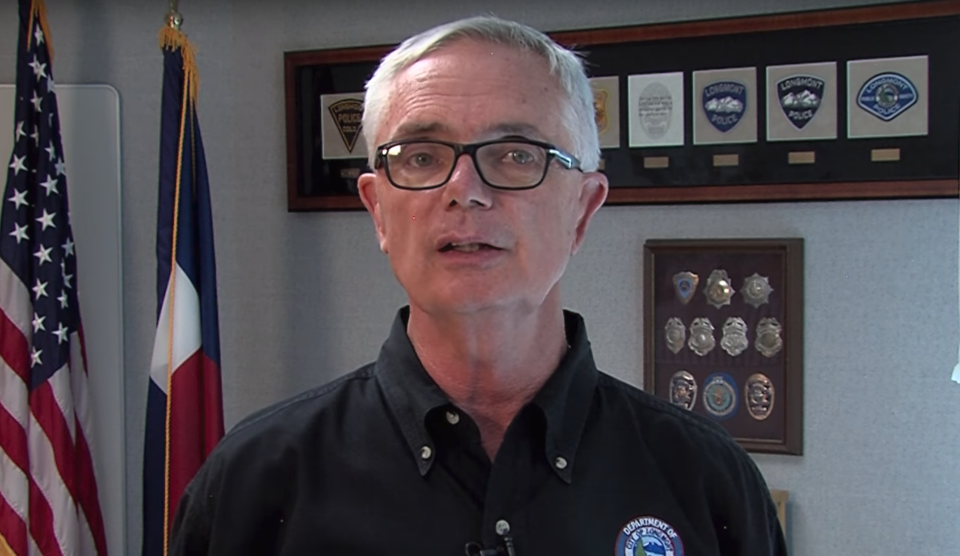This content was originally published by the Longmont Observer and is licensed under a Creative Commons license.
We need leaders. And we need them to show up differently.
We are fascinated by our leaders. We tend to see leaders as the cause and all others as the effect. All that counts are what leaders do. Leaders are in the foreground and everybody else is in the background. Leaders are the leverage point on which communities or countries are built.
It is this focus on leaders that significantly limits our capacity to create a future that is different from our present or our past. With this perspective, it is clear the only accountability exists at the top and that leaders are the only ones worth talking about. The result of seeing leadership through this patriarchal lens is that it lets citizens off the hook. It breeds dependency and entitlement. It minimizes the ideal and idea that each and every person must be accountable to each other and for the good of the whole.
The change leaders should consider is found in their capacity to create opportunities and a place where people know their voice counts, their thoughts matter and maybe most importantly, their humanness is valued! For this to happen leaders must be able to design cultures of accountability and action, to value and emphasize their roles in the art of inviting and convening people, to see the importance of relatedness, to act with intention, and to learn to ask powerful questions that produce engagement by others.
Leaders need to believe that within their organization, their community, or their country there is an enormous wealth of talents, skills, expertise and resources that, if surfaced and activated, is truly the only way to create a desired future that is different than the present or the past— a future characterized by personal accountability, new possibilities, commitment and action.
It can be done and there are many examples where this has happened.
Given that we are seemingly always in the process of electing or selecting leaders, I would like to offer 10 litmus questions for people to consider when making a choice for our leaders.
Does the person wanting a leadership role:
1) Just provide answers, or are they adept at asking powerful questions? Answers typically limit engagement on the part of others; well designed questions can create engagement and the possibility of a necessary and new conversation.
2) See the community as a problem to be solved or do they emphasize the possibilities of community? Problem solving merely fixes the past; possibility thinking transcends old stories, our failures and envisions what we can live into.
3) Believe systems, improved expertise, leadership and the professionals are the foundation of a great community, or do they understand that only great citizens can produce great communities?
4) Try to convince you they are or have the answers to your problems, or do they encourage you to believe you can be the author of your own experiences?
5) Believe that our country, state, community or organization should work for everybody, or do they create divisiveness amongst people?
6) Market fear and fault and let us know all the reasons why we should be afraid, or do they talk about how our greatness is determined by the content of our goodness?
7) Reinforce self-interest and isolation or are they committed to the wellbeing of the whole? Often leaders build walls around them under the siege of fears.
8) Believe social and health issues can be solved by ramping up laws and oversight, or do they embrace the idea that healing and restoring only occurs when those who are struggling or marginalized are supported and cared for when embraced by the entire community.
9) See the abundancy of our community, or do they operate from a scarcity mindset? There is room for everyone to meaningfully participate, not just a few! Our community should be one that works for all!
10) Have the skills and perspective to invite and convene all voices and find common ground, or do they default to partisanship?
We can no longer, as citizens, blame leaders and in the same breath, declare our own innocence. It is important for us to choose the leaders that can galvanize a whole community, state or country, and it is more important for each of us to be the authors of our own destiny, be the caretakers of our neighborhoods, and to be accountable for the good of the whole.
What I have learned about our community of almost 100,000 people is that there is an abundance of gifts, skills, talents and resources that is largely untapped. What I know from the 150 neighborhoods that Dan Benavidez and I have walked and from living in this community for four decades is that there are literally thousands of people who want to offer their gifts.
We need leaders who recognize the possibilities of our community and are willing to surface and activate the goodness and infinite nature of all of us.
Mike Butler
Longmont, Colorado
This is an opinion piece that was submitted to the Longmont Observer and does not necessarily represent the opinion of the Longmont Observer. If you have an opinion piece you’d like published, please visit our ‘Submit an Opinion’ page.




